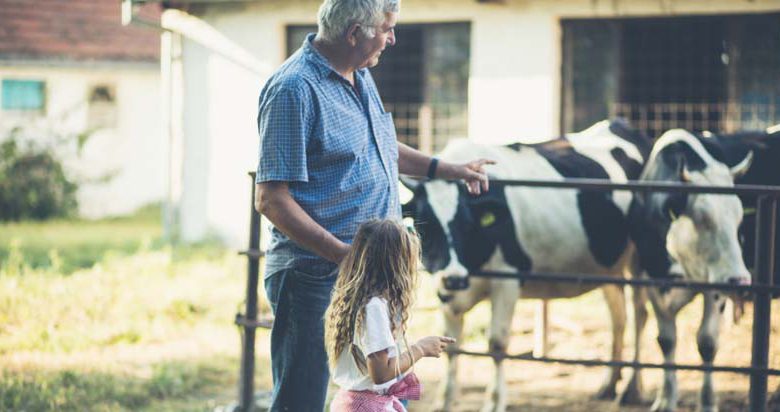Community Helpers to the Rescue!

Community Helpers to the Rescue!
Kids love superheroes. (Let’s face it, adults do, too.) Ordinary people with the desire to help … donning special uniforms … defying the odds and making the world a better place … who doesn’t want to hear that story?!? A story about community helpers.
For preschoolers and kindergarteners, some of the most important heroes they’ll ever meet live in their own communities. They’re called Community Helpers, and they just might inspire your child to be a better person and citizen.
Who Are These Brave People?
Community Helpers are people who make our lives easier every day by keeping communities safe, clean, and orderly. Here’s a list of a few that you can find in most any community. (If you haven’t read our other article on Community Helpers, make sure you do!)
- Those who help us learn exciting new things: Teachers and librarians
- Those who keep us safe: Police officers, firefighters, and emergency workers
- Those who provide our food: Farmers, chefs, and cooks
- Those who help us stay healthy: Doctors, dentists, and nurses
- Those who keep our communities clean: Custodians and garbage/recycling collectors
- Those who help us while traveling: Road construction workers, crossing guards, snowplow drivers, and transit drivers
- Those who help us at home: Construction workers who build our homes, utility workers, plumbers who make repairs, and delivery people who bring us mail and packages
- Those who care for animals: Veterinarians and game wardens
Community Helpers as Role Models
Just like superheroes stay anonymous by using an alter ego, Community Helpers often go unseen by the people they serve.
As a parent, make sure to point out Community Helpers when you and your children come in contact with them. They may not even realize that there are people making sure their communities are safe, cared for, and maintained.
In fact, pointing these role models out may encourage your child to think about the kinds of jobs they want to consider as an adult and how those jobs tie into a community’s greater good!
Reggio Emilia & Community Helpers
Community Helpers actually highlight an important part of the Reggio Emilia philosophy that Little Sunshine’s Playhouse and Preschool holds.
The second principle of Reggio Emilia asserts that children are collaborators and learn through interaction within their communities. This goes hand in hand with Community Helpers! Use interactions with Helpers like the ones listed below to facilitate learning and interaction between your child and the people around them.
- Teachers and librarians: Point out how important the job of sharing and teaching information is. What if no one knew how to read or write? What if no one knew how to find out new things or understand the world better? We’d be doomed!
- Police, firefighters, and emergency workers: Have your child think about what the world would be like if no one was there to help us when there was an emergency. How would that make them feel? Does that make them appreciate these Community Helpers more?
- Farmers, chefs, and cooks: Explain the complicated “food chain” process that your food goes on, from farm to table. If you aren’t sure about the process, pull out your phone and look it up with your kids. This helps them realize that food doesn’t magically appear in the grocery store.
- Doctors, dentists, and nurses: Talk about the relief having access to doctors, dentists, and nurses gives you as a parent. Tell your kids what it would be like if you couldn’t get to one when you were sick. How would they feel if they (or someone they love) didn’t feel good and didn’t know why?
- Custodians and garbage/recycling collectors: Of all our Community Helpers, these are one of the most underappreciated and unseen. Make sure to point these unsung heroes out when you see them in public. Tell your kids how vital their jobs are in keeping the world from turning into a giant, dirty trash heap!
- Road workers, crossing guards, snowplow drivers, and transit drivers: It’s easy to forget how complicated transportation can be. The next time you pass through a construction zone, weather gets bad, or you ride the metro, ask your child to imagine what it would be like if these Community Helpers weren’t there keeping everything moving. (Short answer: Chaos.)
- Construction workers, utility workers, plumbers, and delivery people: These workers are very good at staying out of the public eye, but make sure your children know that houses don’t build themselves, electricity doesn’t just appear, and our packages aren’t teleported in from nowhere. Much like our food, try and explain the complicated processes that have to happen in order for everyday luxuries to exist. And, like many of the other services Community Helpers provide, ask your kids to imagine a world where these helpers weren’t around. (Again, chaos.)
- Veterinarians and game wardens: Community Helpers don’t just help people! Our pets and the animals humans use to do all sorts of amazing things need cared for, too. Kids also need to know there are people who make sure humanity does its part in taking care of the natural world around us.
After talking about these different Community Helpers, try to point them out when you and your family encounter them. Approach them with your child and tell the Helper about your conversation. Tell the Helper thank you, and have your child do the same. Not only have you made the Community Helper approachable for your child, you’ve probably made the Helper’s day!
Fred Rogers (of “Mr. Roger’s Neighborhood” fame) is famous for saying, “When I was a boy and I would see scary things in the news, my mother would say to me, ‘Look for the helpers. You will always find people who are helping.’” While this is certainly true for children who are scared, it’s also something parents should consider during a normal day … who is helping in your community, what can that teach your child, and how can you show appreciation?





